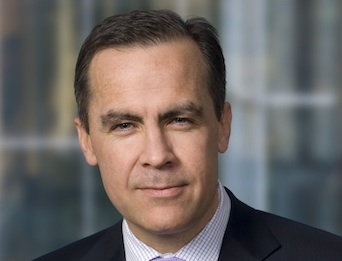There are three days until Mark Carney arrives in the UK to take up the role of Governor of the Bank of England.
Mr Carney will take up the role on Monday 1 July and hold his first Monetary Policy Committee meeting on 3-4 July.
Mr Carney has been working as the Governor of the Bank of Canada for the past five years and also sits on the board of the G20 Financial Stability Board.
Many people will be looking to see if Mr Carney will change interest rates, the 0.5 per cent has been held for over four years, or the asset purchase policy which currently stands at £375bn.
James Humphries, senior investment manager at Duncan Lawrie Private Bank, said: "The question is can the UK economy currently stand on its own two feet? The straight answer is no. But recent data suggest it is heading in the right direction. Carney is unlikely to turn the QE tap off just yet and in the run up to his arrival he has been championing the idea of an on-going stimulus strategy.
"He is therefore likely to continue Mervyn King's stance of trying to encourage other MPC members to vote for an extension of QE. But being one of a panel of nine members he is naturally limited in his ability to be radical."
{desktop}{/desktop}{mobile}{/mobile}
Azad Zangana, European economist at Schroders, said the structure of the Bank and his role as Governor would be different to his role in Canada.
He said: "What Carney cannot do is force through stimulus without the majority support of the relevant committee. Unlike the Fed, members of the MPC are personally, not jointly, responsible for delivering the MPC's mandate on price stability. For example, Mervyn King has been outvoted in the last five meetings in calling for more QE.
"The new governor will undoubtedly bring a fresh perspective to the debate but may struggle to gain much traction in introducing some more radical ideas, at least not without a substantial downturn in the economic activity."
In a meeting with the Treasury Select Committee earlier this year, Mr Carney said he was aware he would be in the minority on some decisions and wanted to work toward "consensus-based" decision making.
• Want to receive a free weekly summary of the best news stories from our website? Just go to home page and submit your name and email address. If you are already logged in you will need to log out to see the e-newsletter sign up. You can then log in again.

